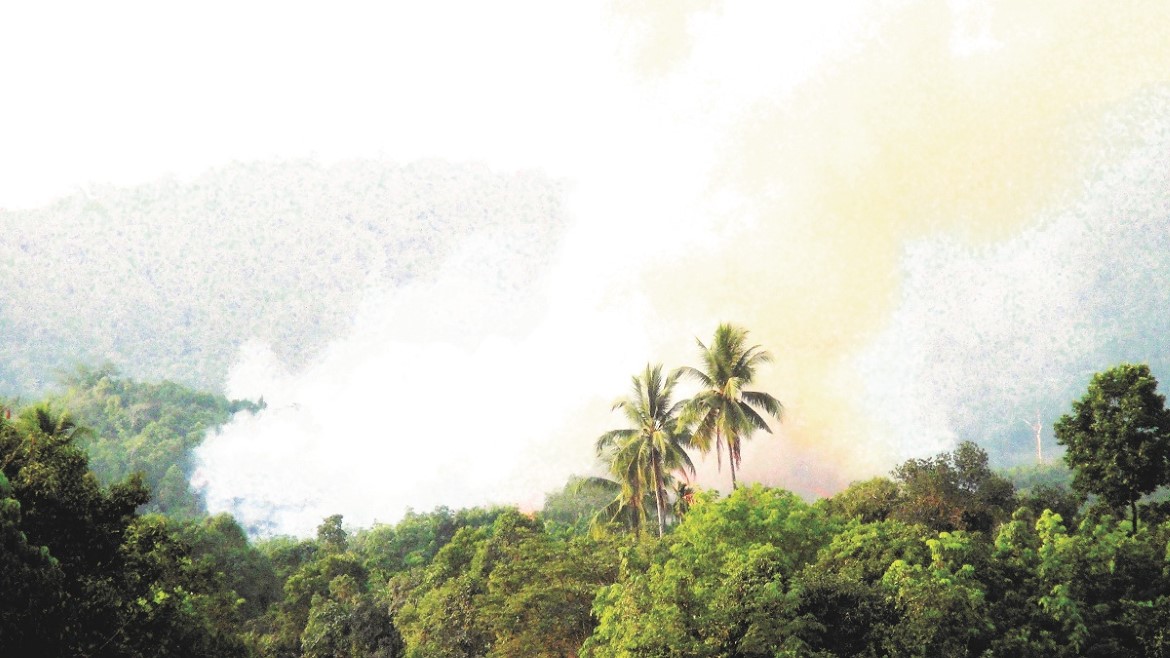
Fighting illegal deforestation and improving indigenous control
Organization
Forest Trends
Component 1: Ending Illegal Deforestation, Forest Conflict and the Associated Mekong Timber Trade
Given its large forest estate, the commercial “opening up” of Least Developed Countries, and tightly intertwined timber trade and economic interests, conversion for agriculture is squarely the largest driver of deforestation in the Mekong. The legality of this conversion and its associated impacts will be some of the largest challenges facing the Mekong region in the next decade.
Why
INTERPOL states that illegal logging now accounts for 15-30% of the global legal trade. Coupled with illegal deforestation, particularly for commercial agriculture, it also undermines efforts such as REDD+ to mitigate climate change by reducing emissions.
Illegal clearing for commercial agricultural causes 49% or more of global deforestation, leading to an estimated 1.5 gigatonnes of C02 emissions per year.
In the Mekong, the figure is likely higher than the global average, not only in terms of area lost, but also the likelihood that this clearing is illegal and/or far from environmental and social international best practice. It also has strong negative impacts on Indigenous Peoples and other forest-dependent communities.
Budget
Norad intends to offer NOK 33 million in total for the period 2016-2020.
What
This project will support policy, industry, and market transformations away from products sourced from illegally-deforested land in the Mekong by supporting the interaction of forest governance, law enforcement, trade, economic development, land/resource rights, and market legality requirements.
Through evidence-based analysis, coalition-building, and capacity development, it will take advantage of critical political opportunities to create or reform strong legal frameworks that address systemic institutional problems (such as corruption) preventing sound forest governance in the region.
Expected results
Increased commitment to rule of law under this project is expected to reduce illegal deforestation and associated trade as well as resource conflict. Simultaneously, networking efforts will enable public-private partnership development and strengthen the ability of government, private sector, and civil society stakeholders to sustain momentum for governance reforms.
Partners
Vietnam REDD+ Network, Vietnam Timber and Forest Product Association (VIFORES), Handicraft and Wood Association of Ho Chi Minh City (HAWA), Asia Justice and Rights (AJAR), Pyoe Pin, Karen Environmental and Social Network (KESAN).
Component 2: Defending the Living Amazon for Humanity
Why
Indigenous territories account for approximately 33% of the carbon stocks in the Amazon region - in large measure because indigenous peoples have historically been good forest stewards.
Where deforestation pressures are high, their territories are frequently among the only remaining areas of protected forests. However, only 11% of international REDD funding commitments target support for indigenous peoples, and 0.4% is actually managed by indigenous organizations.
What
Efforts to reduce emissions from deforestation and degradation may be more effective if the people who are responsible for territorial management and control have more direct control over REDD resources.
The project will support the Coordinator of Indigenous Organizations of the Amazon Basin (COICA) to build technical and governance capacity within indigenous institutions to obtain and manage climate finance in order to fulfil their community Life Plans.
Successful implementation will, in turn, facilitate advocacy for pro-indigenous forest policy as well as improved forest governance in political, economic, and cultural terms.
Expected results
The training, improved administrative and financial management skills, and networking enabled by this project are expected to generate successful proposals leading to at least US$20 million in new funding commitments through indigenous funding channels such as the proposed Indigenous Fund for the Amazon.
With support to improve indigenous livelihoods and territorial governance, indigenous peoples can more effectively help to slow or even reverse deforestation.
Partners
Forest Trends, the Coordinator of Indigenous Organizations of the Amazon Basin (COICA), Environmental Defense Fund, and World Wildlife Fund.
About the project descriptions
The project descriptions give insight in the NICFI portfolio for civil society organisations supported by Norad.
The descriptions presented are written by the project partners. Only minor edits have been undertaken by Norad. Their presentations and conclusions do not necessarily reflect the views of Norad.
